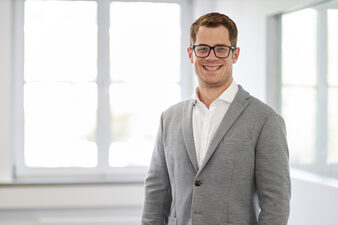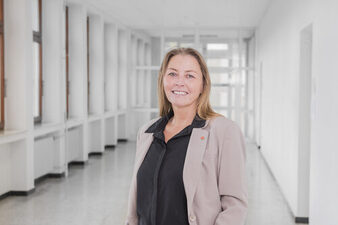About the project
The aim of the PuLS (Parking and Charging in the City) research project is the pilot implementation of a holistic approach to increasing access to charging infrastructure for electric vehicles, combined with a reduction in parking space search traffic and emissions pollution in city centers. To this end, charging infrastructures are linked with innovative parking space sensors and integrated into private vehicle parking spaces. Dortmund's Kreuzviertel district serves as a model district with a high volume of parking search traffic, a large number of private parking spaces and a high level of openness towards electromobility among residents.
Figure 1 shows the conceptual interaction between the users and technical components of the PuLS approach to be developed.
The central component of the approach is the software-based, service-based PuLS platform, which IDiAL is responsible for implementing. The platform integrates the sensor data from the charging infrastructure and provides interfaces for downstream information and communication systems. It also implements a number of project-specific use cases.
On the one hand, owners of private charging infrastructure are given the opportunity to make their charging infrastructure available to other owners of electric vehicles for a certain period of time and for a fee via a web-based, graphical user interface ("charging infrastructure sharing" use case). Once the charging infrastructure offered has been booked, the PuLS platform then controls the release of the charging infrastructure at the agreed time for charging the booking person's electric vehicle. This use case addresses, among other things, the fact that the workplaces of many residents of the Kreuzviertel are not located in the district itself, but in other districts or neighboring cities, so that many private parking spaces and charging infrastructure are not used on working days and would therefore be available for visitors to the Kreuzviertel.
Another use case that the PuLS platform will implement is the provision of parking and environmental data collected by charging infrastructure. While the collection of parking data already results from the integration of parking sensors into the charging infrastructure, additional emission sensors are planned for the collection of environmental data. The combination of parking and emission data results in the realization of a function within the use case for municipal environmental officers, with which they can determine hotspots of parking search traffic and emission pollution. This results in the possibility of introducing targeted measures to reduce emissions, e.g. on the basis of optimized traffic flow control within the model district.
In addition to implementing the PuLS platform, IDiAL is also responsible for implementing the described use cases as a project partner.
Sponsor
Funding code
03EMF0203C
Funding program / Research program
Electric mobility funding guideline of the BMVI
Link: https://www.foerderdatenbank.de/FDB/Content/DE/Foerderprogramm/Bund/BMVI/elektromobilitaet-bund.html (Opens in a new tab)
Cooperation/project partners
- DEW21


